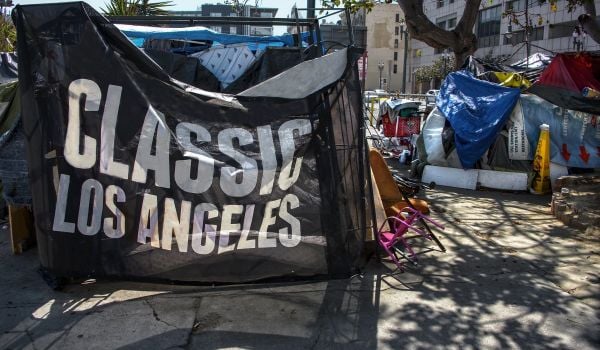Welcome to “The Mobile City,” our weekly roundup of noteworthy transportation developments.
Bus Driver Shortages Playing Hob With Transit Service Across the Country
The pandemic recovery has been hamstrung by one major problem: Shortages of virtually everything, from raw materials to people. And the labor shortage also includes a shortage of bus drivers.
In the Twin Cities, WCCO reports that Metro Transit had to cancel some 200 bus runs this past weekend because of a shortage of drivers. The agency has upped starting wages for bus drivers to more than $21 per hour and is offering signing bonuses in order to fill vacancies faster. No commercial driver’s license? No problem: Metro Transit will also pay for the training drivers need to get one in hopes of filling 100 openings right away.
Meanwhile, Colorado Public Radio reports that despite a rise in transit ridership, Denver’s Regional Transportation District (RTD) won’t be moving to restore service to pre-pandemic levels because it lacks the bus and train operators it needs to implement more than modest service increases. The article notes that area fast-food restaurants are offering new hires starting wages close to the $20 per hour new RTD drivers earn, and Lance Longebohn, head of the Amalgamated Transit Union (ATU) local representing most RTD bus and rail operators, noted that those jobs are less stressful than driving crowded buses through traffic.
And The Oregonian reports that Portland’s Tri-Met is having similar problems hiring drivers as ridership recovers there. Like Metro Transit, Tri-Met has had to cancel bus trips due to the shortage of drivers. Both Tri-Met officials and leaders of Tri-Met’s ATU local note the agency faces stiff competition for drivers from package delivery companies and other transportation and logistics firms. Bill Bradley, a member of ATU Local 757’s executive board, told The Oregonian that drivers are also leaving Tri-Met to seek less stressful work elsewhere: “Whether a brown truck, a white truck, food delivery, fuel delivery — people take their CDLs and are able to earn more money elsewhere,” he said.
Also driving the move away from Tri-Met: increased assaults on drivers. Since the pandemic began, physical and verbal assaults on drivers have risen more than fourfold in Portland, from 0.41 per 100,000 rides to 1.75 per 100,000. The agency says it is currently about 27 drivers and 40 maintenance employees short of the number it needs to operate current service.
Pittsburgh Plans Road Diet for Major Thoroughfare Along with Transit Improvements
We’ve come a long way since 2004, when an Onion parody article focused on the travails of a Pittsburgh city planner who “found himself stuck in rush-hour traffic of his own design.”
The frustrated fictitious planner told The Onion how wider highways would have eased his pain and cursed himself for recommending that land in “an access-limited waterway confluence” be rezoned for commercial use.
Today, some of that “access-limited” waterside land attracts throngs of Pittsburghers to a former warehouse district-turned-entertainment zone. And to enhance mobility for everyone who comes to the Strip District, the Pittsburgh Post-Gazette reports that the city’s Department of Mobility and Infrastructure is making a major street much more pedestrian-friendly.
According to the article, a 20-block stretch of Liberty Avenue in the Strip District will have its motor-vehicle lanes cut in half to create bike lanes and turning lanes. Also part of the plan: Improved crosswalks, upgraded traffic signals with pedestrian push-buttons, improved accessibility for people with disabilities, and bigger, more comfortable stops for Port Authority of Allegheny County buses.
The city is currently collecting feedback from the public on the planned improvements, which come with a $6.2 million price tag. The city plans to begin construction in the summer of 2023.
And this isn’t the only project in Pittsburgh that seeks to improve mobility and access for those not in cars. Another P-G article describes both near-term and long-term improvements the Port Authority seeks to make in its system.
In the near term, the agency’s Performance Oversight Committee recommended that the Port Authority board hire construction managers for a $230 million bus rapid transit line connecting the Golden Triangle with the university district in Oakland. Meanwhile, its Planning and Stakeholder Relations Committee recommended that the board adopt the “NEXTransit” plan, a 25-year, $4 billion package of 18 projects that includes extensions of the existing light rail network and the Martin Luther King Jr. East Busway BRT line as well as the addition of a new transit corridor connecting the Strip District, Oakland, Hazelwood and Carrick.
The full Port Authority board will consider both recommendations at its Sept. 24 meeting.
GM Tells Chevy Bolt Owners to Put Social Distance Between Their Cars and Others
From The Detroit News comes news of more fallout from General Motors’ hitting a speed bump on the road to a zero-emissions-vehicle future.
The fallout is related to battery fires that have led GM to recall all of the Chevy Bolt electric vehicles currently on the road. According to the story, a concerned Bolt owner who worried whether they could safely store their car in a parking garage has led the company to advise Bolt owners to park their vehicles in an open-air space at least 50 feet away from any other vehicle. The company also advised owners against leaving their cars unattended at parking-lot or garage EV charging stations.
These new recommendations come on the heels of recommendations that Bolt owners charge their batteries to no more than 90 percent, charge them more frequently, avoid draining the batteries below 70 miles of juice remaining and park them outside.
The recall and the recommendations stem from a “rare” manufacturing defect that has so far caused 12 Bolts to burst into flames. There are currently 141,000 Bolts on the road. Production of GM’s only electric vehicle has also been halted while the automaker and battery supplier LG Energy Solution try to figure out how the defect arose, how to get rid of it and who should pick up how much of the tab for fixing the cars. (The total cost of doing that works out to $1.8 billion.) GM will replace the defective battery packs in current Bolts.
The advice will no doubt dismay Bolt owners who, like most motorists, seek to park their cars as close as possible to the entrance of wherever it is they’re going.
Know of a transportation development that should be featured in this column? Send a Tweet with links to @MarketStEl using the hashtag #mobilecity.

Next City contributor Sandy Smith is the home and real estate editor at Philadelphia magazine. Over the years, his work has appeared in Hidden City Philadelphia, the Philadelphia Inquirer and other local and regional publications. His interest in cities stretches back to his youth in Kansas City, and his career in journalism and media relations extends back that far as well.
Follow Sandy .(JavaScript must be enabled to view this email address)
















